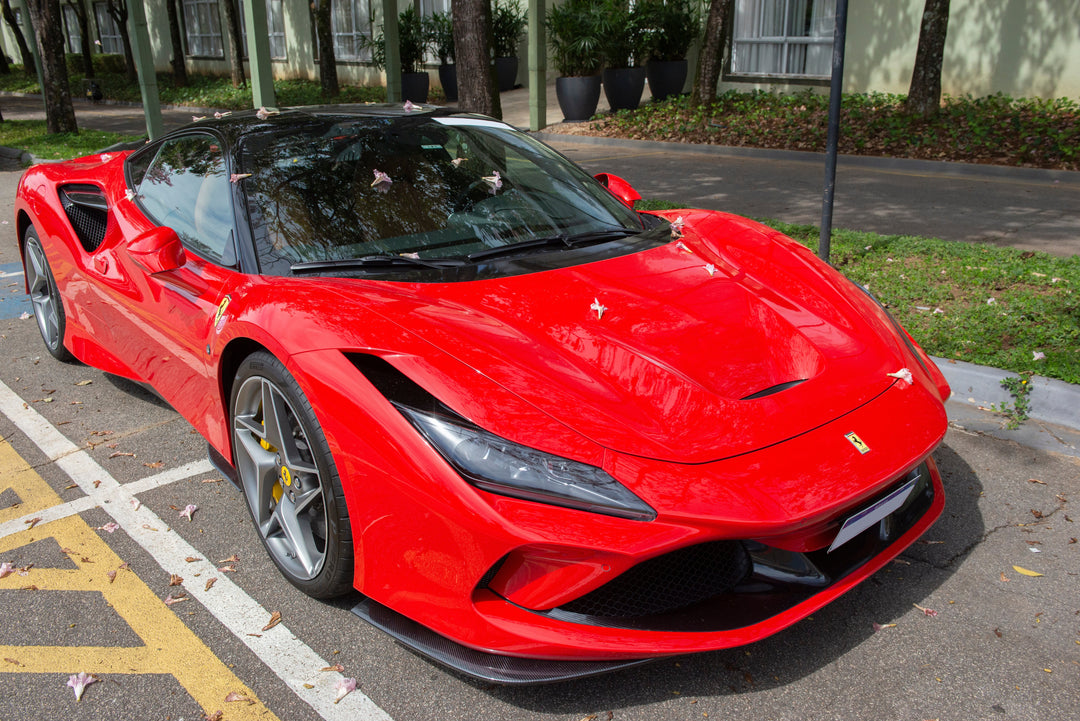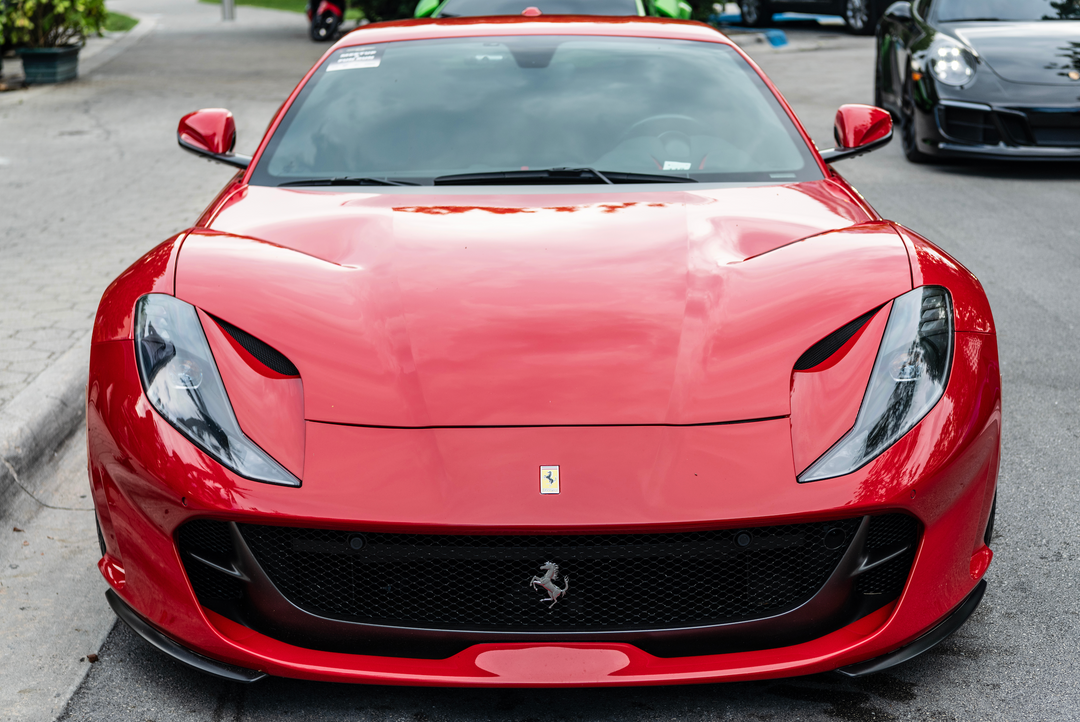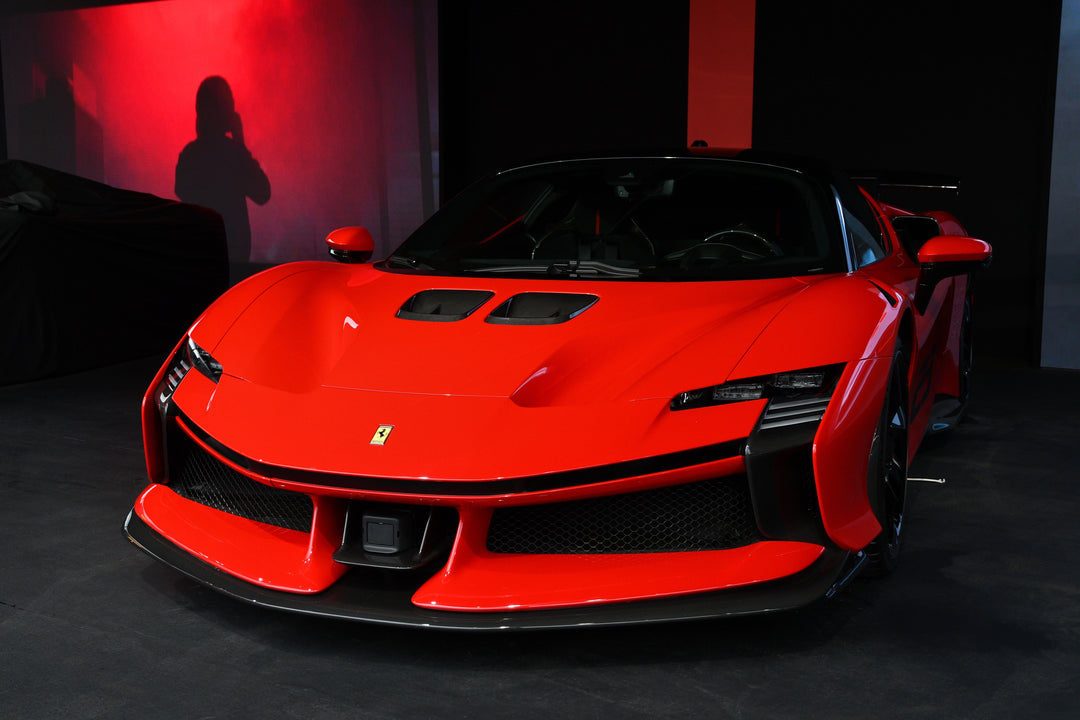Enhancing Your Ride – The Benefits of Window Tinting for Your Car
Window tinting is more than just a style statement for your car—it's a functional upgrade that offers numerous benefits. From protecting your vehicle's interior to improving privacy and comfort, window tinting has become a popular choice among car owners. But why should you invest in this seemingly simple modification? In this comprehensive blog post, we’ll explore the advantages of window tinting, how it works, and why it’s a must-have for your vehicle.
What is Window Tinting?
Window tinting involves applying a thin film to the interior or exterior of a vehicle’s glass surfaces. These films are typically made from polyester and are designed to block sunlight, reduce glare, and enhance privacy. Depending on the type and grade of film, window tinting can also provide additional benefits like UV protection, heat reduction, and shatter resistance.
Window tints come in various shades and levels of darkness, allowing car owners to customize their vehicles according to their style and functional needs while adhering to local regulations.
Why You Should Tint Your Car Windows
-
UV Protection
Prolonged exposure to ultraviolet (UV) rays can damage both your skin and your car's interior. UV rays can cause fading, cracking, and deterioration of materials like leather and plastics. Window tinting blocks up to 99% of harmful UV rays, protecting both you and your vehicle from the sun’s damaging effects. -
Heat Reduction
During hot summer months, your car’s interior can feel like an oven. Tinted windows help keep the interior cooler by blocking a significant amount of solar heat. High-quality films, such as ceramic or carbon tints, can reduce interior heat by up to 60%, making your drive more comfortable and reducing the strain on your air conditioning system. -
Improved Privacy and Security
Tinted windows make it harder for prying eyes to see inside your car, protecting your belongings from potential theft. This added privacy also provides peace of mind when parking in busy areas or unfamiliar locations. -
Glare Reduction
Glare from the sun or headlights of other vehicles can be distracting and even dangerous while driving. Window tinting reduces glare, improving visibility and reducing eye strain, especially during long drives or nighttime travel. -
Enhanced Aesthetic Appeal
Window tinting adds a sleek, polished look to your vehicle, enhancing its overall appearance. Whether you prefer a subtle upgrade or a bold transformation, tinting offers a customizable way to make your car stand out. -
Shatter Resistance
Window tinting films add a layer of protection to your car’s windows. In the event of an accident or attempted break-in, the film helps hold shattered glass together, reducing the risk of injury and improving safety. -
Energy Efficiency
By reducing heat buildup, tinted windows lower the workload on your air conditioning system. This can improve fuel efficiency and extend the life of your vehicle’s cooling components.
Types of Window Tinting Films
When choosing window tinting, it’s essential to understand the different types of films available:
-
Dyed Film
- Pros: Affordable, good at reducing glare and improving privacy.
- Cons: Less effective at blocking heat and UV rays, can fade over time.
-
Metalized Film
- Pros: Durable, excellent at blocking heat and UV rays.
- Cons: Can interfere with GPS, radio, and cell signals due to its metallic content.
-
Carbon Film
- Pros: Non-metallic, effective at heat reduction, does not fade over time.
- Cons: More expensive than dyed film.
-
Ceramic Film
- Pros: Best performance in heat and UV blocking, reduces glare, does not interfere with electronics, highly durable.
- Cons: Premium cost.
-
Hybrid Film
- Pros: Combines dyed and metalized layers for balanced performance and affordability.
- Cons: Still prone to signal interference.
Legal Considerations for Window Tinting
Before tinting your windows, it’s important to check local regulations regarding allowable tint levels. Most jurisdictions specify a minimum Visible Light Transmission (VLT) percentage, which indicates how much light must pass through the windows. For example:
- Front Windows: Typically require higher VLT levels (e.g., 70%) for visibility.
- Rear Windows: Often allow darker tints (e.g., 20%-30%).
- Windshield: Many places allow only a small tinted strip at the top.
Failing to comply with tint laws can result in fines and the need to remove the film, so be sure to consult a professional installer who is familiar with local requirements.
Choosing the Right Tint for Your Car
When selecting a window tint, consider the following factors:
- Purpose: Determine whether your priority is UV protection, heat reduction, or privacy.
- Budget: Higher-quality tints like ceramic and carbon films cost more but offer superior performance and longevity.
- Aesthetic Preference: Choose a shade and style that complements your vehicle’s appearance.
- Professional Installation: A skilled installer ensures proper application, compliance with laws, and a long-lasting finish.
DIY vs. Professional Window Tinting
While DIY tinting kits are available, professional installation is highly recommended for the following reasons:
- Precision: Professionals ensure a flawless, bubble-free application with no uneven edges.
- Quality Materials: Reputable installers use high-quality films that last longer and perform better.
- Warranty: Most professional services include warranties for both the film and installation.
- Legal Compliance: Professionals are knowledgeable about local tinting laws and ensure your car meets legal standards.
Maintaining Tinted Windows
To keep your tinted windows looking and performing their best, follow these maintenance tips:
- Wait Before Cleaning: Avoid cleaning your windows for at least a week after installation to allow the film to cure.
- Use Gentle Cleaners: Choose ammonia-free, non-abrasive cleaning products to prevent damage to the film.
- Avoid Sharp Objects: Be careful with seatbelt buckles or sharp tools that could scratch the tint.
- Inspect Regularly: Check for peeling or bubbling and address any issues promptly with your installer.
Why Window Tinting is Worth the Investment
Window tinting isn’t just about improving your car’s appearance—it’s a practical upgrade that enhances comfort, safety, and efficiency. From blocking harmful UV rays to reducing glare and providing privacy, window tinting offers a range of benefits that make driving more enjoyable.
Conclusion
Window tinting is a versatile and valuable addition to any vehicle, providing a perfect balance of style and functionality. Whether you’re looking to protect your car’s interior, reduce heat, or simply enjoy more privacy, tinted windows are an excellent investment that pays off in comfort, safety, and resale value.
To get the most out of your window tinting, choose high-quality films and work with a trusted professional installer. With the right tint, you can drive confidently and comfortably, knowing that your car is protected and looking its best.
Ready to upgrade your vehicle with window tinting? Contact a certified professional today to learn more about the best options for your car and enjoy the benefits of a cooler, safer, and more stylish ride.





Leave a comment